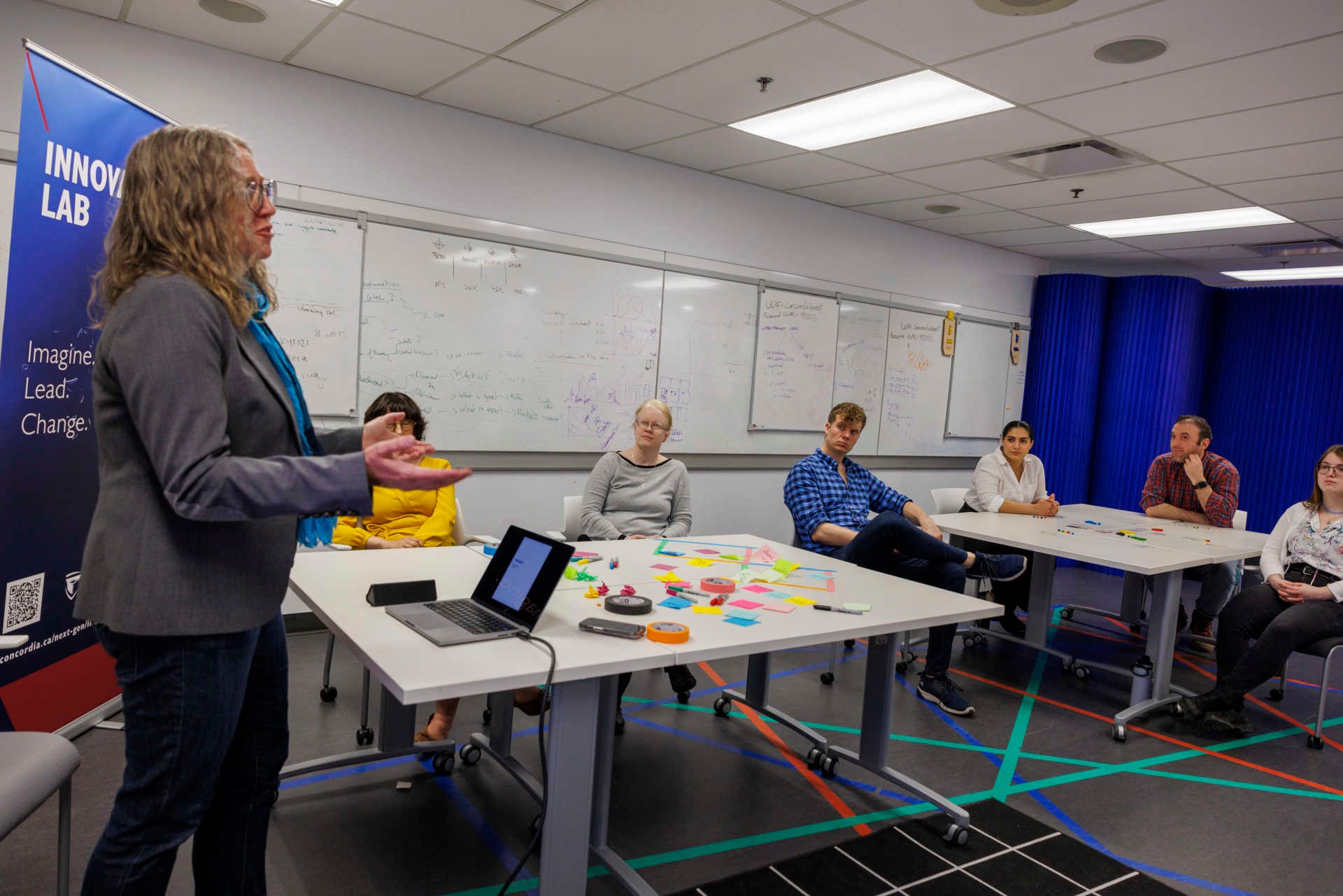Questions?
Contact Professor Ann-Louise Davidson
Email Ann-Louise
Innovation courses
Dive into the dynamic world of innovation and become a catalyst for change in any environment.
Innovation as a mindset
Set yourself up for success! Innovation is a skillset that's in high demand across industries. Whether you dream of making waves in an established company, creating positive change in your community or launching your own venture, taking an innovation course is a stepping stone to your future.

All undergraduate students welcome
Both INTE 298 and INTE 398 are undergraduate courses open to all students who are eager to make a difference. No matter your background or major, if you're ready to embrace innovation, these courses are for you.
Current innovation courses
INTE 298: Innovation frameworks and concepts
INTE 298 is designed to equip you with the essential frameworks and concepts that underpin innovation within organizations, a powerful force that drives growth, adaptability and success. Throughout this course, you'll explore innovation from every angle, gaining the tools you need to thrive in today's rapidly evolving landscape. No prerequisites.
This 3-credit course is offered in the winter term.
INTE 398: Innovation methods and strategies
This course introduces students to a range of instruments, techniques and approaches to collect data that inform innovation projects or assess innovation ideas. Through a combination of lectures, case studies and hands-on activities, students develop knowledge of ethnographic fieldwork, interview techniques and focus groups to collect and analyze data about customer needs and market trends in a context of economic disruption. They also learn to report findings through writing a narrative in a storytelling approach and to pitch an innovation idea or concept. No prerequisites.
This 3-credit course is offered in the fall term.
Want to go deeper?
Current students can also apply for the Innovation Mindset elective group.
Not a current student?
The Innovation Mindset microprogram is open to all.
